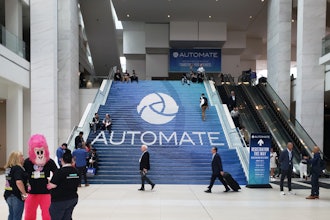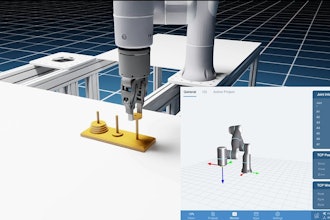Outside of the business law community, a signed contract seems like a sure thing: an immutable agreement that eliminates uncertainty and stipulates clear terms and conditions that two parties have agreed upon. The reality can be quite different, however. In many circumstances, contractual language can be altered or even nullified much easier than some might think—and it doesn’t even take a written agreement to do so. Binding changes to the terms of a contract can sometimes take place following verbal agreements—even when those modifications are proposed or agreed to by lower managers or employees.
The changeable nature of some contracts even extends to contracts that include explicit anti-modification and anti-waiver language: clauses written and included specifically as a way to ensure that unauthorized changes do not take place. Such clauses often appear in the form of language such as “this contract may be modified or amended only by a written document signed by the parties.”
However, as too many manufacturing executives and decision-makers have discovered the hard way, even language that is specifically designed to preclude unwritten changes to an existing contract might not be sufficiently protective. Whenever there are several people involved in the administration of a contract, miscommunication tends to happen. The complexities and chaos of a busy manufacturing environment, and the inherent communication challenges along the supply chain, create plenty of opportunities for costly misunderstandings and unauthorized (but ultimately legal) modifications.
Consider the following example of how one such scenario might play out. A Tier One company agrees to terms on a contract to provide interior trim. A Tier Two supplier provides the hides that will ultimately be dyed, stretched and stitched over a molded plastic frame. To try and prevent any future changes to the terms of the agreement, the manufacturer inserts an anti-modification and anti-waiver clause into the contract. The contract specifically states (in what appears to be unambiguous language) that: this contract may be modified or amended only by a written document signed by the parties. When the quality of the hides becomes unsatisfactory 18 months later, a dispute arises between the two parties. The supplier claims that one of the Tier One manufacturer’s plant managers approved the new, lower standards. After speaking with an attorney, the manufacturer is surprised and displeased to discover that the anti-modification/anti-waiver provision they thought was protecting them could be circumvented or rendered ineffective.
Legal Limbo
While such a sequence of events might seem surprising, specific decisions made by Michigan courts have determined that anti-modification and anti-waiver clauses do not inherently or universally protect against oral modifications. In Quality Products & Concepts Co. v. Nagel Precision, Inc., 469 Mich 362; 666 NW2d 251 (2003), the Michigan Supreme Court found that two parties are free to mutually waive or modify their contract regardless of whether there is an existing anti-modification and anti-waiver clause. The legal principle behind this result is “freedom to contract.”
To put it plainly, even explicitly forbidding modification isn’t enough, as such language can be “overruled” and/or nullified by certain actions or statements made by the two parties. In other words, the “no modifications” clause can itself be modified! That might seem counterintuitive or even nonsensical, but there is some good news: there are steps you can take to strengthen those clauses and protect yourself against unwanted or unanticipated changes.
Protective Measures
So, what can be done? What can manufacturing decision-makers do to minimize contractual uncertainty and protect the integrity of their existing contracts? The first and most important step you can take is to specify precisely who has the authority to modify the terms of a contract. While it may seem on the surface to be a distinction without a difference, changing the language from the realm of the universal (no unauthorized changes can be made) to the specific (only persons A and B are permitted to make changes) makes a critical legal difference in the strength of the anti-modification/anti-waiver clause.
Even if an anti-modification clause standing alone might not be completely protective against unwanted oral amendments, strengthening that clause with specific additional detail about the individual(s) or office-holder(s) that are exclusively authorized to approve a modification makes it much harder to convince a court that a change made by anyone else is legally binding. Michigan court decisions have rejected attempts to ratify a contract modification in cases where the change was not approved by the individual or individuals granted exclusive authority to make changes. Pepperman v Auto Club of Michigan Ins Group, 181 Mich App 519; 450 NW2d 66 (1989) is one example of such a case. While Michigan rulings do not have national precedential value, they are indicative of the uncertainties inherent to this issues, and should be taken as a reminder of the significance of setting limitations on contractual change-making authority, and of the importance of consulting legal counsel experienced in these matters before signing a commercial contract.
The key is to carefully limit any changes made to processes, products or protocols to specifically identified persons who have been expressly granted the authority to make those changes. Manufacturing professionals should be reluctant to cede control of contractual obligations to personnel managing day to day operations who may not have a full appreciation for why certain contractual terms were reached in the first place. If an unauthorized employee changes the terms of an agreement, the resulting legal consequences can be far more sweeping and long lasting than anyone intended.
While these issues can arise in virtually any industry, the typically high-volume, high-stakes nature of manufacturing (where small changes to parts, policies or processes can have big downstream implications) makes understanding the nuances of anti-modification and anti-waiver clauses especially relevant. Manufacturing executives and decision-makers who want to protect their businesses and their bottom lines would be wise to stay educated and informed on these issues.
John Mucha is a member of Dawda, Mann, Mulcahy & Sadler, PLC and can be contacted at [email protected].























